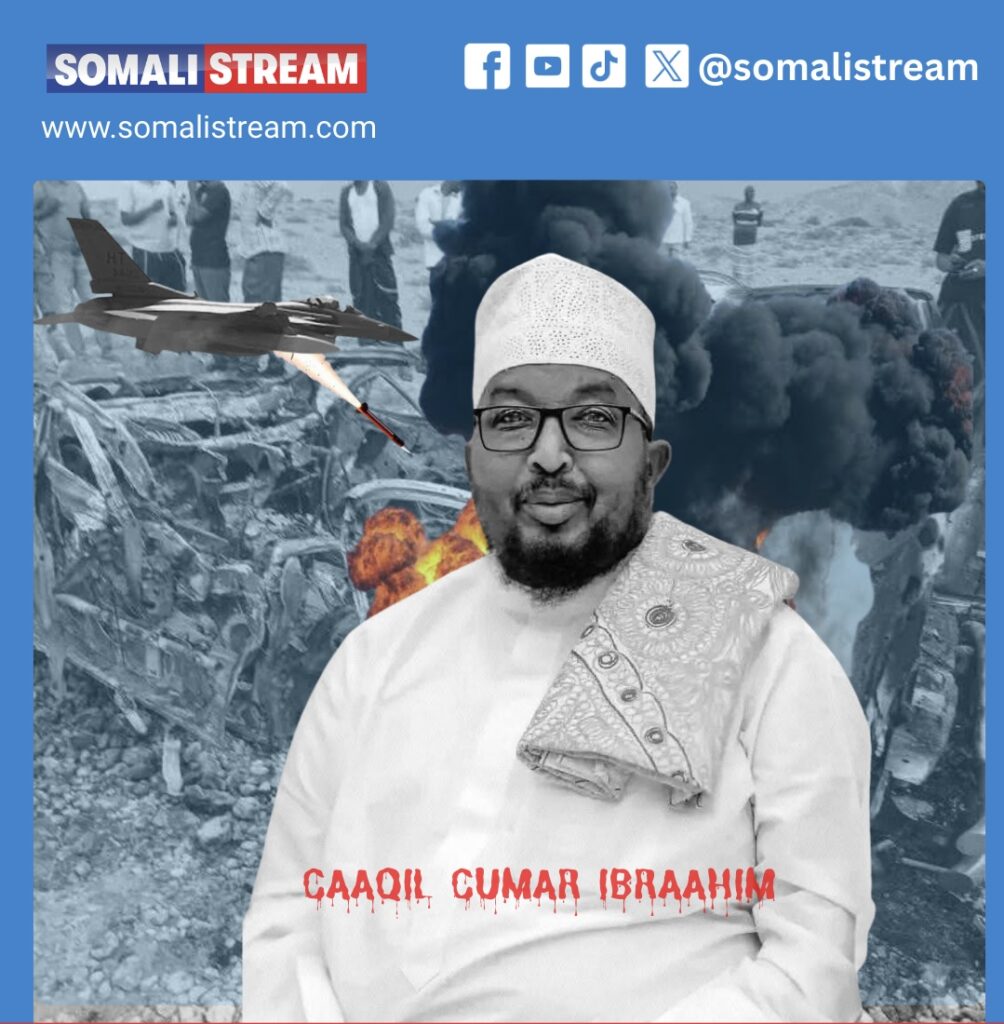On a clear Saturday afternoon, September 13th, the silence over Jiicanyo, a remote stretch of road near Ceelbuuh in Somalia’s Sanaag region, was broken by the roar of an unmanned aircraft. Moments later, a missile tore through the lone vehicle of Omar Abdi Ibrahim, a respected elder known simply as Peacemaker Omar. By the time locals reached the scene, the elder was dead and his car reduced to twisted metal.
For many in Sanaag, the killing of Omar was not just another statistic in Somalia’s long conflict. It was a political message, though no one yet knows who sent it – or why.
Omar, aged 68, was a hereditary peace elder, one of the men tasked with mediating disputes, guiding communities, and preserving the fragile threads of Somali customary governance. In Badhan and the wider Sanaag region, his name carried weight. He was not affiliated with any armed group or political coalitions.
Just weeks earlier, he had been in Bosaso, sitting at the table with Puntland President Said Abdullahi Deni, alongside other clan leaders and sultans, to discuss regional reconciliation efforts. He was described as a voice of calm in a time of uncertainty explaining why his death has shaken everyone.
According to Puntland police commander for the Sanaag region, Omar was driving alone to Badhan when the strike hit. No passengers. No escort. Just one elder on his way from nearby Ceelbuuh, where he had been staying with family.
The commander’s statement, however, has raised more questions than it answered. If Omar was indeed the only occupant, the strike appears to have been a direct, deliberate hit. Yet, Puntland authorities have not provided any further detail, and no armed group, whether ISIS or Al-Shabaab, has claimed responsibility.
Across Somalia, unmanned strikes, by the U.S., Türkiye, and other powers, are often aimed at Al-Shabaab or ISIS-linked militants. But in this case, no group has stepped forward, leaving a troubling void.
News of the elder’s killing spread quickly. In Sanaag, mosques fell quiet as prayers were offered for the man whose life was devoted to preventing bloodshed. On social media, Somali users voiced anger and fear: if peace elders could be struck from the sky, who was safe?
The Speaker of the Puntland Parliament, Abdirisaaq Ahmed Said, issued a brief condolence statement, calling Omar “a respected Peacemaker,” but carefully avoided addressing the question haunting the community: Who ordered the strike?
Somalis have seen this before.
In 2017, a U.S. raid on Bariire killed 10 civilians after faulty intelligence misidentified them as insurgents. Investigations later confirmed the mistake, but the damage was irreparable. To many, Omar’s death feels like another tragedy borne from flawed information, where the shadow war against extremists claimed the life of a man who fought for peace, not violence.
Such incidents deepen mistrust of both local and foreign forces and targeting elders undermines community trust, which is essential for stability.
A Dangerous Precedent
What makes Omar’s killing particularly alarming is the symbolic nature of his role.
Somali peace elders are not just community figures; they are political actors, mediators, and sometimes the last barrier preventing clan disputes from spiraling into violence. To target one is to destabilize the delicate balance of Somali society.
The silence surrounding his death – no admission, no claim, no investigation, has only fueled suspicion. Was Omar collateral damage, a mistaken identity, or a calculated assassination cloaked in the anonymity of drone warfare?
Unanswered Questions
Nearly 24 hours after the strike, and still no clarity: Who owned the drone? Puntland authorities have offered no explanation. Was Omar misidentified as a militant?
If deliberate, who gains from his death? Until those questions are answered, the death of Nabadoon Omar will remain more than a personal tragedy – it will stand as another reminder of how impunity and secrecy continue to define Somalia’s shadow wars.
For his community, Omar Abdi Ibrahim will be remembered not for the way he died, but for the way he lived: a man who carried the burden of peace on his shoulders, who stood between clans when tempers rose, and who believed dialogue was stronger than violence.


